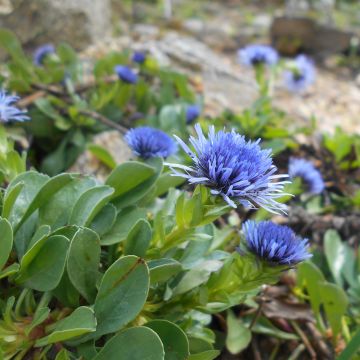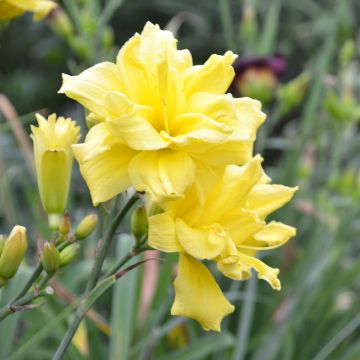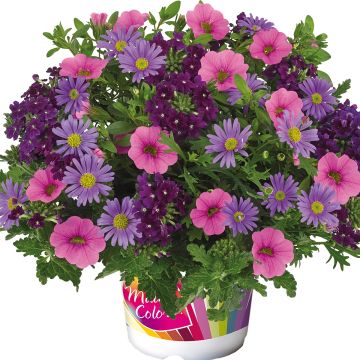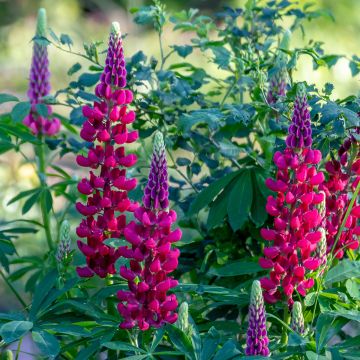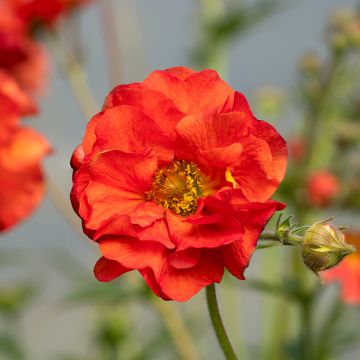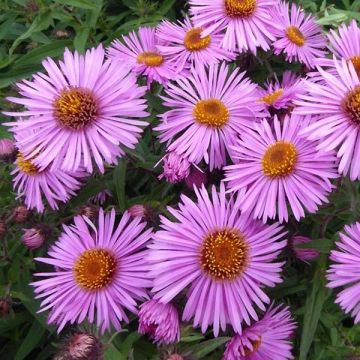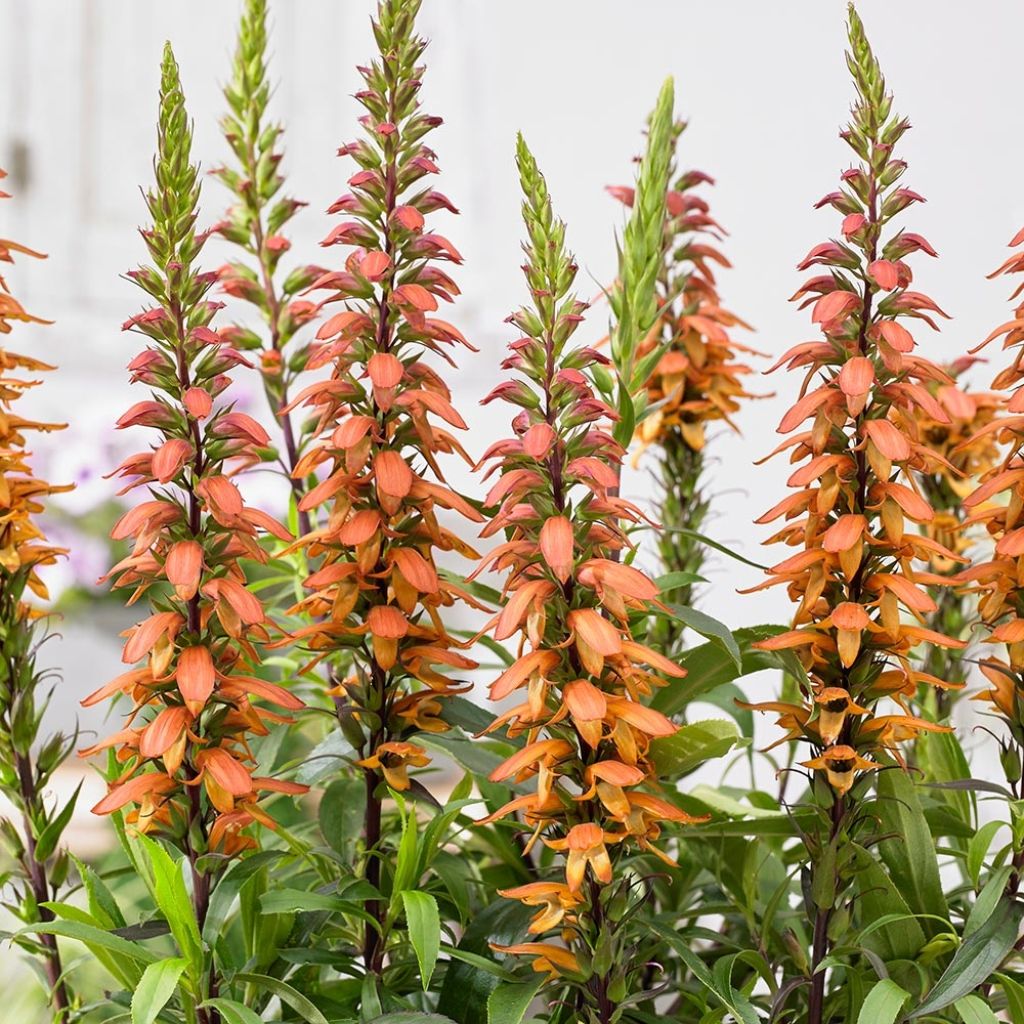

Isoplexis hybride Bella - Digitale des Canaries
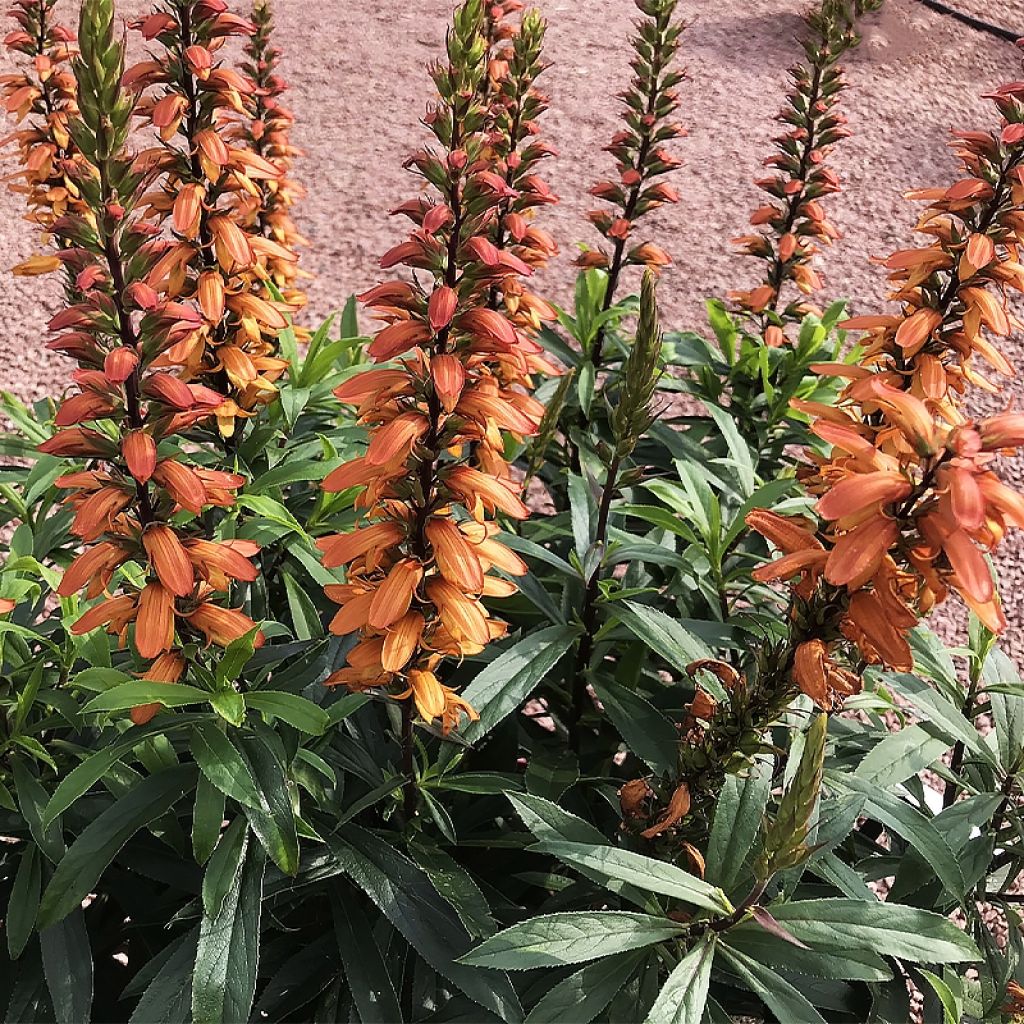

Isoplexis hybride Bella - Digitale des Canaries
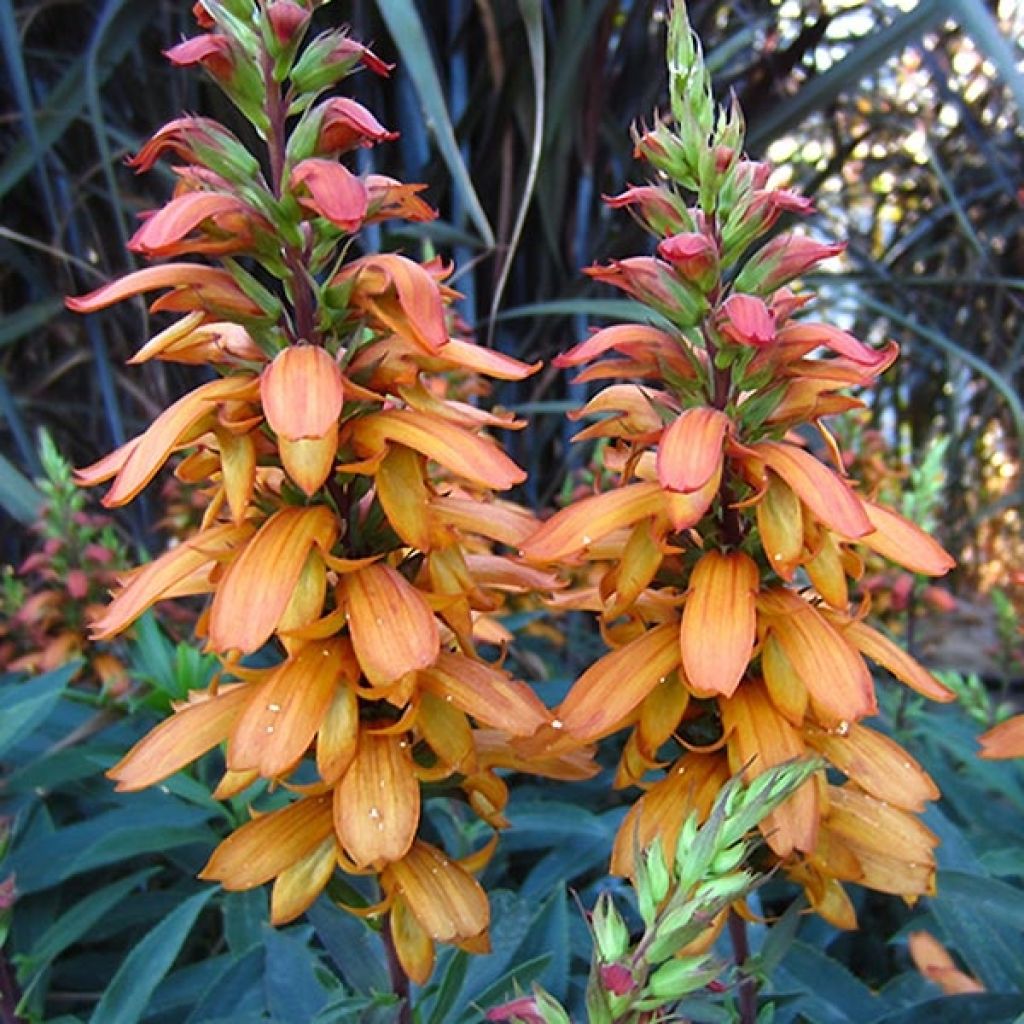

Isoplexis hybride Bella - Digitale des Canaries
Isoplexis x isabelliana Bella
Isoplexis x isabelliana Bella
This item cannot be shipped to the selected country
Delivery charge from €5.90
Delivery charge from €5.90
More information
Schedule delivery date,
and select date in basket
This plant carries a 12 months recovery warranty
More information
We guarantee the quality of our plants for a full growing cycle, and will replace at our expense any plant that fails to recover under normal climatic and planting conditions.
From €5.90 for pickup delivery and €6.90 for home delivery
Express home delivery from €8.90.
From €5.90 for pickup delivery and €6.90 for home delivery
Express home delivery from €8.90.

Does this plant fit my garden?
Set up your Plantfit profile →
Description
Isoplexis isabelliana 'Bella' is a new variety of Canary Island foxglove selected in England for its more compact habit. It is ideal for pot cultivation. It is an amazing but tender perennial, evergreen in winter, with a discreetly exotic charm, whose very long summer to autumn flowering somewhat resembles the shape of the foxgloves found in our woodlands. Its tall dark red flower spikes carry tightly packed beautiful flowers in flared tubes, mixing different shades of soft orange, apricot, and rust. This beauty will thrive in well-drained soil, in full sun or partial shade, only in our mildest regions.
Isoplexis isabelliana belongs to the Plantaginaceae family. It is very close to Isoplexis canariensis, endemic to the pine woodlands of the Canary Islands where it is endangered. Its hardiness is estimated at -5 to -7°C (23 to 19.4°F) for very short periods. The 'Bella' cultivar, shorter than the wild species, has recently emerged in the United Kingdom thanks to the close collaboration between Hillier Nurseries and the seed company Suttons. It is a fast-growing woody-based perennial that can also be grown as an annual in the open ground in our cold regions. It develops several leafy stems that form a beautiful clump about 30cm (12in) wide. Each stem, dark in colour, is adorned with long and narrow leathery leaves, tapering to a point, in a dark green shade. The flowering extends from July to October-November, without interruption. In the upper part of the 60cm (24in) tall flower spikes, a multitude of horizontal flowers open, with four long pointed petals (two large petals in a horizontal plane and two small lateral petals) fused only at the base. Each flower is a blend of apricot, pale salmon, and orange, with an open throat striped with brown. The flowers are very long-lasting.
Showing perfect performance in very mild climates, Isoplexis isabelliana is an excellent plant for unheated patios and verandas, as accommodating as it is floriferous. It will make an extraordinary rockery or border plant in our mildest regions, paired with viper's bugloss, for example. You can enjoy this delightful 'Bella' variety for a long time in a large pot near the house, to be stored away in winter in cold climates.
Report an error about the product description
Isoplexis x isabelliana Bella in pictures
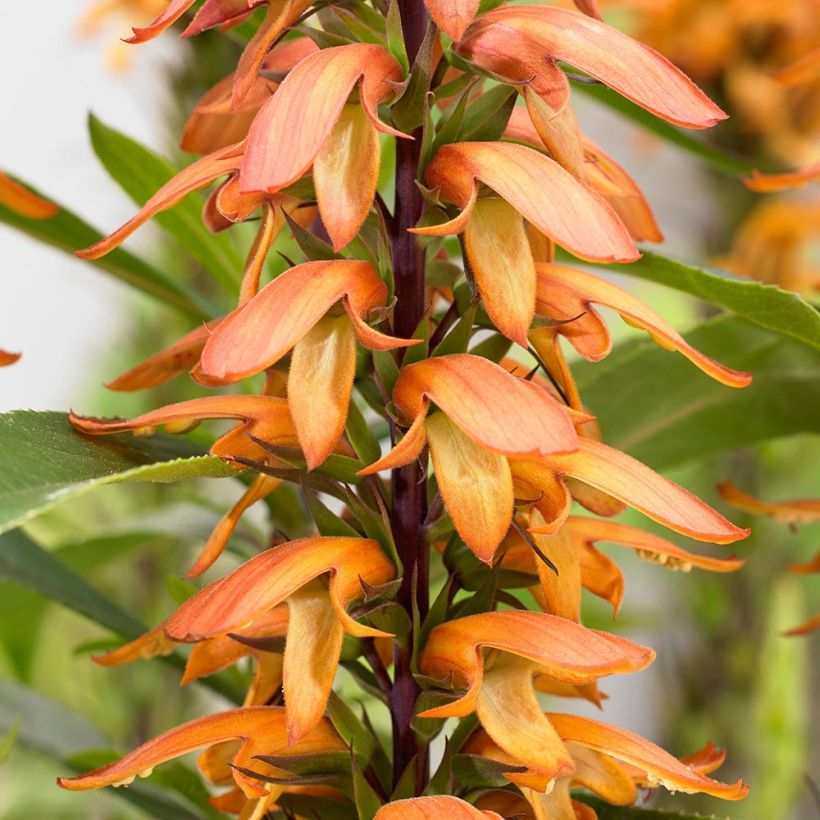

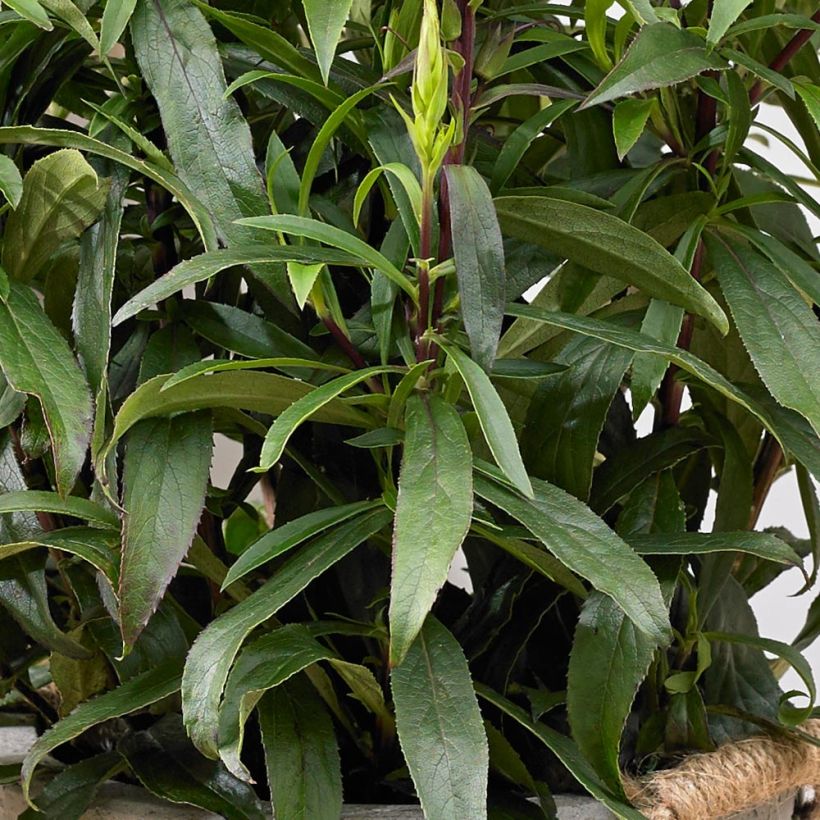

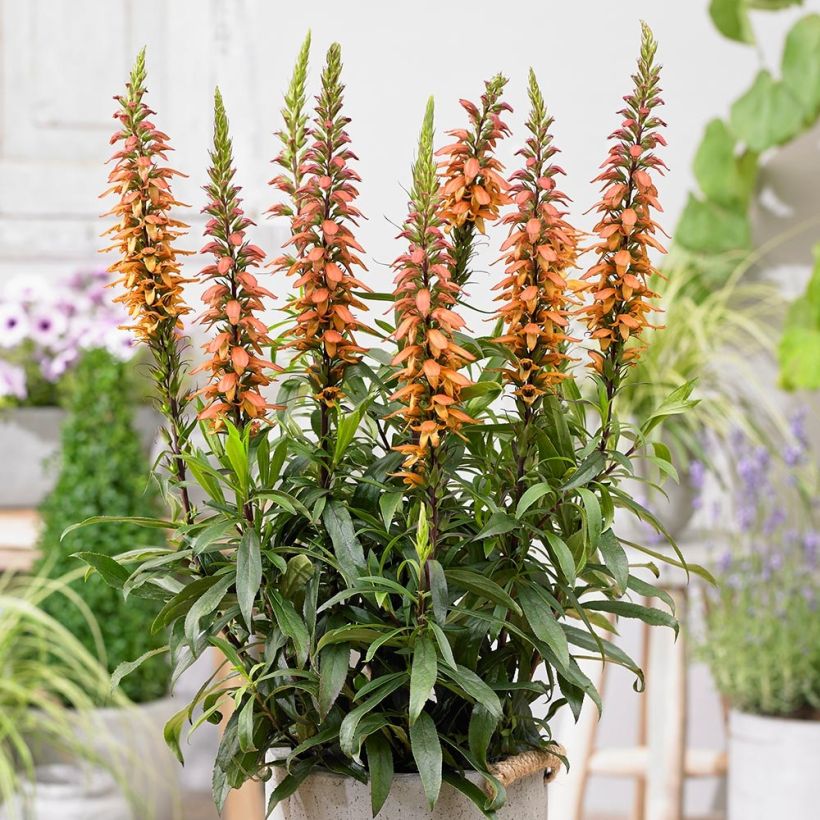

Flowering
Foliage
Plant habit
Safety measures
Botanical data
Isoplexis
x isabelliana
Bella
Scrophulariaceae
Cultivar or hybrid
ingestion
Cette plante est toxique si elle est ingérée volontairement ou involontairement.
Ne la plantez pas là où de jeunes enfants peuvent évoluer, et lavez-vous les mains après l'avoir manipulée.
Pensez à conserver l'étiquette de la plante, à la photographier ou à noter son nom, afin de faciliter le travail des professionnels de santé.
Davantage d'informations sur https://plantes-risque.info
Other Perennials A to Z
Planting and care
Isoplexis 'Bella' is not very hardy. It will perish as soon as the temperature drops below -5°C (23°F). It is easy to grow in pots, planted in a sunny or semi-shady position in ordinary, moist but well-draining soil. It does not have any particular requirements regarding soil pH, but excessive limestone or poor soils should be avoided. In winter, the soil should remain just moist, never waterlogged. Its lifespan is quite short and its growth rate is rapid. In pots, it should be brought indoors during the coldest periods of winter to protect it from severe frost. The plant requires vernalisation (a period of relative cold) for 4 to 6 weeks to induce flowering buds. Watch out for mites and scale insects in a heated room.
Planting period
Intended location
Care
This item has not been reviewed yet - be the first to leave a review about it.
Haven't found what you were looking for?
Hardiness is the lowest winter temperature a plant can endure without suffering serious damage or even dying. However, hardiness is affected by location (a sheltered area, such as a patio), protection (winter cover) and soil type (hardiness is improved by well-drained soil).

Photo Sharing Terms & Conditions
In order to encourage gardeners to interact and share their experiences, Promesse de fleurs offers various media enabling content to be uploaded onto its Site - in particular via the ‘Photo sharing’ module.
The User agrees to refrain from:
- Posting any content that is illegal, prejudicial, insulting, racist, inciteful to hatred, revisionist, contrary to public decency, that infringes on privacy or on the privacy rights of third parties, in particular the publicity rights of persons and goods, intellectual property rights, or the right to privacy.
- Submitting content on behalf of a third party;
- Impersonate the identity of a third party and/or publish any personal information about a third party;
In general, the User undertakes to refrain from any unethical behaviour.
All Content (in particular text, comments, files, images, photos, videos, creative works, etc.), which may be subject to property or intellectual property rights, image or other private rights, shall remain the property of the User, subject to the limited rights granted by the terms of the licence granted by Promesse de fleurs as stated below. Users are at liberty to publish or not to publish such Content on the Site, notably via the ‘Photo Sharing’ facility, and accept that this Content shall be made public and freely accessible, notably on the Internet.
Users further acknowledge, undertake to have ,and guarantee that they hold all necessary rights and permissions to publish such material on the Site, in particular with regard to the legislation in force pertaining to any privacy, property, intellectual property, image, or contractual rights, or rights of any other nature. By publishing such Content on the Site, Users acknowledge accepting full liability as publishers of the Content within the meaning of the law, and grant Promesse de fleurs, free of charge, an inclusive, worldwide licence for the said Content for the entire duration of its publication, including all reproduction, representation, up/downloading, displaying, performing, transmission, and storage rights.
Users also grant permission for their name to be linked to the Content and accept that this link may not always be made available.
By engaging in posting material, Users consent to their Content becoming automatically accessible on the Internet, in particular on other sites and/or blogs and/or web pages of the Promesse de fleurs site, including in particular social pages and the Promesse de fleurs catalogue.
Users may secure the removal of entrusted content free of charge by issuing a simple request via our contact form.
The flowering period indicated on our website applies to countries and regions located in USDA zone 8 (France, the United Kingdom, Ireland, the Netherlands, etc.)
It will vary according to where you live:
- In zones 9 to 10 (Italy, Spain, Greece, etc.), flowering will occur about 2 to 4 weeks earlier.
- In zones 6 to 7 (Germany, Poland, Slovenia, and lower mountainous regions), flowering will be delayed by 2 to 3 weeks.
- In zone 5 (Central Europe, Scandinavia), blooming will be delayed by 3 to 5 weeks.
In temperate climates, pruning of spring-flowering shrubs (forsythia, spireas, etc.) should be done just after flowering.
Pruning of summer-flowering shrubs (Indian Lilac, Perovskia, etc.) can be done in winter or spring.
In cold regions as well as with frost-sensitive plants, avoid pruning too early when severe frosts may still occur.
The planting period indicated on our website applies to countries and regions located in USDA zone 8 (France, United Kingdom, Ireland, Netherlands).
It will vary according to where you live:
- In Mediterranean zones (Marseille, Madrid, Milan, etc.), autumn and winter are the best planting periods.
- In continental zones (Strasbourg, Munich, Vienna, etc.), delay planting by 2 to 3 weeks in spring and bring it forward by 2 to 4 weeks in autumn.
- In mountainous regions (the Alps, Pyrenees, Carpathians, etc.), it is best to plant in late spring (May-June) or late summer (August-September).
The harvesting period indicated on our website applies to countries and regions in USDA zone 8 (France, England, Ireland, the Netherlands).
In colder areas (Scandinavia, Poland, Austria...) fruit and vegetable harvests are likely to be delayed by 3-4 weeks.
In warmer areas (Italy, Spain, Greece, etc.), harvesting will probably take place earlier, depending on weather conditions.
The sowing periods indicated on our website apply to countries and regions within USDA Zone 8 (France, UK, Ireland, Netherlands).
In colder areas (Scandinavia, Poland, Austria...), delay any outdoor sowing by 3-4 weeks, or sow under glass.
In warmer climes (Italy, Spain, Greece, etc.), bring outdoor sowing forward by a few weeks.


































